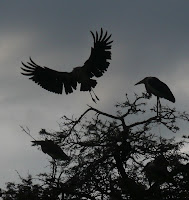 my family in particular. My dad and his brother along with three brothers of my mother made the transition from World War II soldier to the destiny of a lifelong job at Pontiac Motors. Even two of mom’s sisters took on the role of Rosie-the-Riveter during the War. I was struck the first time that I heard of the people in our small town of Leonard referred to as factory-rats. My grandfather, the dapper guy that sat at the head of the table for Thanksgiving and Christmas, was one too. My dad was always gone, for he worked the afternoon shift from two till midnight. At times he often had two other jobs, working at the local nut and bolt factory, then the rural Free Press paper route that sent him away at four in the morning.
my family in particular. My dad and his brother along with three brothers of my mother made the transition from World War II soldier to the destiny of a lifelong job at Pontiac Motors. Even two of mom’s sisters took on the role of Rosie-the-Riveter during the War. I was struck the first time that I heard of the people in our small town of Leonard referred to as factory-rats. My grandfather, the dapper guy that sat at the head of the table for Thanksgiving and Christmas, was one too. My dad was always gone, for he worked the afternoon shift from two till midnight. At times he often had two other jobs, working at the local nut and bolt factory, then the rural Free Press paper route that sent him away at four in the morning.At that time in my youth, there was an acceptance of how life was. In school, I enjoyed art, math, history, and geography but the motivation was in my hands. At eleven you were no longer a kid that caught tadpoles but there was work on the local farms or papers to deliver. Lingering in the future was Pontiac Motors.
Dad proudly brought home a gold medallion of the 50 Millionth Car. Being an avid coin collector I relished such a token. On the following Sunday, we were to visit Pontiac Motors for an open house. This was the place that contained my family and I was excited at such an unveiling. Mom always dressed us, kids, well that day. We were looking good. Initially, the massive parking lot projected the number of people involved. Inside guarded gates, we had to be somewhere so very important. The massive buildings were beyond anything I could have imagined. “Okay, dad! Where do you work?” Truck Repair was not what I was expecting – sort of a dingy hole out the way from car production. “Okay, dad! Where does grandpa work?” It may have been Building Seven, as everything seemed to have a number. Off the way, there was a metal stairway down into the darkest dirtiest dungeon that I had ever seen. Grandpa was a welder. This was where he spent a third of his life? My response was muted by what others were accepting. Grandpa died two years later of lung cancer. I will forever be traumatized at the sight of him at the hospital, gasping for breath. All I could think of was that dungeon where he worked.
 A few years later, my dad created a tempest in a teacup, when he announced that he would quit the Pontiac factory after fifteen years. It was unheard of for someone to give up such security. Ford had purchased the old Fisher Estate and put up the Michigan Proving Ground a few miles from home. It was the sort of place a farm boy could relate to, as a kid dad had admired the Black Angus cattle that were raised at the old farm. Ford kept some of the barns for storage. It changed our family, as dad no longer had to work extra jobs for support. We had a father for the first time.
A few years later, my dad created a tempest in a teacup, when he announced that he would quit the Pontiac factory after fifteen years. It was unheard of for someone to give up such security. Ford had purchased the old Fisher Estate and put up the Michigan Proving Ground a few miles from home. It was the sort of place a farm boy could relate to, as a kid dad had admired the Black Angus cattle that were raised at the old farm. Ford kept some of the barns for storage. It changed our family, as dad no longer had to work extra jobs for support. We had a father for the first time.I had several opportunities in my life to work for automotive companies.
All of their assumed security could not excite my involvement. Perhaps you could say that I am working for them by the nature of my business but a direct connector will never find my servitude.
I trust the current condition of GM will maintain those that invested their lives and families at ‘Generous Motors’. The likelihood looks dim. Such, cradle to grave, options are not believable in today’s marketplace.










































